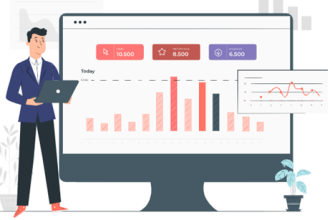Every day presents us with countless choices—some small and routine, others weighty and life-defining. The ability to make effective decisions is a core skill that directly influences both personal development and professional success. Those who master decision-making tend to navigate challenges with greater confidence, clarity, and purpose.
Effective decision-making doesn’t necessarily mean always choosing the “right” option. Rather, it involves a thoughtful process of weighing risks, considering long-term outcomes, and learning from past experiences. Over time, this process becomes a growth catalyst, building emotional intelligence and leadership capability.
Self-Awareness as a Byproduct of Better Choices
One of the most tangible ways decisions shape our lives is through the development of self-awareness. People who regularly reflect on their options, motivations, and outcomes better understand what matters to them. This internal clarity allows them to set boundaries, prioritize goals, and create more intentional lifestyles.
Deliberate choices also reinforce self-trust. When individuals commit to paths that align with their values—even when difficult—they build confidence in their ability to manage future uncertainty. That trust becomes a foundation for resilience, helping them recover more quickly from setbacks and stay focused in periods of doubt.
The Long-Term Effect on Career Trajectories
Decision-making impacts careers in ways that are both immediate and long-term. On a day-to-day basis, professionals constantly prioritize tasks, respond to challenges, and evaluate opportunities. Good decisions in these moments lead to better time management, stronger performance, and improved relationships with colleagues and supervisors.
Over time, the accumulation of smart decisions—like switching roles, pursuing additional training, or accepting new challenges—can dramatically reshape a career. People who learn how to weigh their options strategically often experience greater upward mobility and fulfillment in their work.
Overcoming Indecision with Practical Tools
Of course, some decisions come with high stakes and limited clarity. In these moments, using external tools or structured methods can be helpful. When dealing with indecision or trying to reduce bias, people often benefit from simplifying options into a visual aid. One tool that’s gained popularity is PickerWheel, which introduces an element of randomness in a controlled, visual format. It doesn’t replace judgment, but can break mental paralysis by getting the decision process moving.
Having systems like this in place doesn’t mean avoiding responsibility—it means equipping yourself with ways to overcome common mental blocks like overthinking, fear of failure, or analysis paralysis. Even lighthearted tools can have a serious impact when used with intention.
Emotional Intelligence in Decision Contexts
Emotional intelligence plays a major role in decision-making, particularly when it involves other people. Whether you’re leading a team or navigating a disagreement with a partner, your ability to empathize, communicate, and remain calm under pressure all shape the outcome. Decisions made in anger or haste often damage relationships, while those made with patience and perspective tend to build trust.
Practicing empathy when making decisions involves asking how choices affect others and whether they align with shared values. People with high emotional intelligence don’t just focus on the “what”—they focus on the “how” and “why.” This level of awareness helps foster more inclusive workplaces, healthier relationships, and stronger community ties.
Strengthening Problem-Solving Under Pressure
Effective decision-making also strengthens problem-solving skills. When individuals are faced with ambiguity, their ability to make informed, timely choices helps them navigate uncertainty instead of being paralyzed by it. Rather than waiting for perfect conditions, skilled decision-makers take calculated action and adjust as needed.
This proactive mindset is especially valuable in dynamic environments where waiting too long to act can lead to missed opportunities. The ability to decide, assess, and adapt becomes a competitive advantage, whether in business, education, or personal goals.
Building a Repeatable Decision Framework
Building a consistent decision-making framework helps reduce stress and increase confidence. People who approach decisions methodically—considering facts, seeking input, and assessing alignment with their goals—report less anxiety and greater satisfaction with their choices. These frameworks don’t have to be rigid; they simply provide structure and repeatability.
Reflective practices like journaling, regular check-ins, or post-decision reviews can also deepen learning. Over time, individuals begin to recognize patterns in their thinking and identify areas for growth. This self-awareness sharpens both personal insight and leadership effectiveness.
Making better decisions also often means learning from poor ones. Reflecting on what didn’t work—and why—can offer invaluable insights for future choices. These lessons help create a mindset of continuous improvement, where each experience becomes a stepping stone rather than a setback. Decision-making, then, becomes a skill honed over time, not a talent one is born with.
The ability to make clear, intentional decisions influences nearly every area of life. From daily routines to major turning points, our choices shape the direction we take and the kind of person we become. Developing strong decision-making habits not only builds confidence but also opens the door to personal and professional growth that compounds over time.













